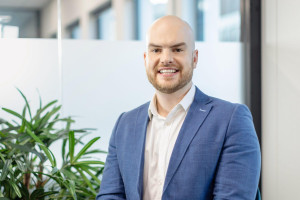Positioning for Aged Care Capital Grants

Capital grants in aged care are increasingly competitive. Each round offers a limited opportunity to fund new or improved infrastructure - but only the best-prepared applications succeed.
Funding bodies are looking for more than compelling ideas: they want evidence of delivery readiness, regulatory alignment, and sustained community benefit.
If your organisation is considering the next grant round, a disciplined, forward-planning approach is essential.
Laying the Groundwork: Strategy, Not Luck
Successful applications rarely emerge from last-minute efforts. They are the result of early planning, internal discipline, and alignment with funding criteria. Key preparatory steps include:
- Design and planning: Translate your project concepts into architectural drawings, costed models, and operational scenarios.
- Demand and impact: Show why the project matters - whether it’s to expand bed capacity, retain existing services, or address unmet community needs.
- Readiness to go: Have your approvals, internal contributions, and compliance with aged care design standards in place.
What Grant Assessors Prioritise
While criteria vary slightly each round, core themes remain consistent:
- New beds: Are you expanding access in areas that need it?
- Retaining existing beds: Are you protecting local access and service continuity?
- Delivery capacity: Are your plans final? Is your delivery and project governance team engaged and ready to go?
- Financial readiness: Has your organisation already taken steps to maximise income? Can the assessor see that you are able to contribute to the project and manage risks to timing and budget?
Applicants who explicitly map their submissions to these criteria - and are backed by robust evidence - tend to score highest.
Stakeholder Engagement: Strength in Visibility
Effective public advocacy is often a differentiator. Funders look for community relevance, political backing, and local alignment. Practical steps include:
- Engaging local MPs and community leaders early
- Confirm internal demand with information from nearby health districts and third parties.
- Hosting local forums to build public support and demonstrate transparency.
- Securing formal letters of endorsement before submission.
Five Actions to Take Now
- Start early: Begin preparation 6–12 months ahead to cover planning, evidence gathering and internal review.
- Develop substantive plans: Partner with organisations to define project scope, costings, and delivery models.
- Link directly to criteria: Sense-check your proposed outcomes against the criteria.
- Build political / community support early: Relationships take time, and endorsements carry weight.
- Demonstrate public value: Clearly articulate how your project benefits the community and stands out.
Case Studies: Three Approaches, Three Lessons
Looking Ahead: Your Next Steps
If you’re targeting the 2026 grant round, begin laying the groundwork now. Aligning internal planning, financial strategy, and external advocacy takes time - and often an upfront investment in design and project development.
Pride Aged Living can support you through this process. We support providers from planning through to submission - helping to organise tasks, close evidence gaps, and keep the process on track. Contact us for a confidential discussion about how to position your project for success.
Upcoming Workshop

- Attend Online
- 27 November 2025, 1:30 pm - 4:00 pm (AEDT)
- Hosted by Pride Aged Living, Paynters and TSA Riley
As demand for residential aged care grows, finding ways to meet that demand with sustainable and financially sound developments has never been more crucial.
Everyone wants more residential places - the challenge is:
- How do you undertake a successful development project?
- How do you make the financial case stack up?
- How do you maintain the facility over the long term?
About the Workshop
Pride Aged Living, Paynters and TSA Riley invite aged care leaders to a practical workshop designed to strengthen capital strategies and support sustainable project delivery.
Gain insights from industry experts across four key areas that underpin capital planning success:
- Creating a Sound Business Case
Understanding Return on Investment, the role of debt and Refundable Accommodation Deposits, and designing appropriate resident mixes.
Bruce Bailey, Director, Pride Aged Living - Developing a Deliverable Capital Project
How to deliver aged care capital projects that are strategically planned, standards-compliant, and operationally effective, all while never losing sight of the core purpose: creating safe, dignified, and welcoming homes for older Australians.
Michael Rasi, Design and Development Manager, Paynters - Managing Climate Risk and Asset Longevity
Understanding the climate change impacts on residential aged care facilities and the case for long-term asset management planning.
Iain Mcfarlane, Associate Director | National Aged Care Sector Lead, TSA Riley
Clinton Rakich, Executive Climate and Nature Lead, TSA Riley
Rose Iversen, Associate | National Asset Management Lead, TSA Riley - Aged Care Capital Grants
How to maximise your chance of success using case studies
Stephen Rooke, Director, Pride Aged Living
George Suharev, Principal Consultant, Pride Aged Living
Who Should Attend
C-suite leaders, board members, strategy executives and finance managers involved in aged care capital planning, development, or governance.
Event Details
Date: Thursday, 27 November 2025
Time: 1:30pm – 4:00pm (AEDT)
Format: Online - Microsoft Teams (link provided to registered online attendees)
To learn more about the workshop and register, click here.
To find out how we can assist with your grant application, contact George.
George Suharev
02 9068 0777
george.suharev@prideagedliving.com.au

